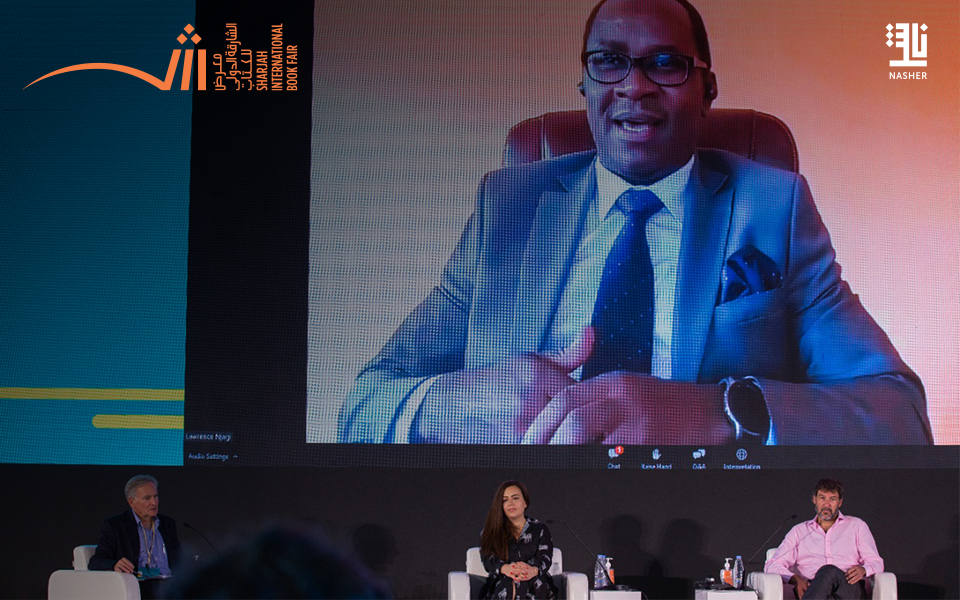The last session on the second day of the 10th Publishers Conference, in the lead up to the 39th Sharjah International Book Fair, SIBF, offered a global perspective on ways the pandemic is reshaping how millions around the world are being educated, and how diverse stakeholders, including governments, publishers, education professionals and technology providers are coming together to leverage digital platforms in shaping temporary solutions that could become a prevalent and consequential trend for future educational practices.
Titled “Home schooling and virtual learning: What is next for education publishing”, the session was led by Lawrence Njagi, Chairperson of Kenya Publishers Association and Managing Director of Mountain Top Publishers; Malak Obeid, Managing Director, Middle East and Africa, at Pearson; and Matthew Santaspirt, Regional Manager, MENA, of the Cambridge University Press. Seth Russo, Advisor, Edureach International consulting LLC, moderated the panel.
Cambridge University Press’s Santaspirt said that while the higher education sector had been more prepared for the sudden transformation to digital learning necessitated by the pandemic situation, the teaching fraternity was not equipped to handle the situation on the ground.
He opined, “The publishing fraternity should support them with research. They should work with the authorities to develop a strategy for the next 10 years or so, as hybrid learning appears to be the way forward in future. Where publishers are concerned, the earlier uncertainty now looks like an opportunity for development.”
Malak Obeid said, “Pearson’s global education survey conducted in June this year which involved over 7,000 people in the 17 to 70 age group, said they felt that the world of education and work has changed in profound ways. While there is resilience and trust in the system, there were also concerns about the inequality in education driven by the digital divide.”
She added, “Pearson is trying to bridge the gap through professional development programmes for teachers and focus groups that target parents. We feel secondary schools will have to adapt to hybrid learning and publishers will have to adapt their material accordingly, which will be driven by critical thinking. Assessment tools will be standardised. Education will change and we must be prepared for it.”
Talking about how the African market had dealt with the situation, Lawrence Njagi, Chairperson of the Kenya Publishers Association, said, “The local publishing fraternity rose to the occasion supplying educational content free of charge. However, the government has announced that once the pandemic subsides it will go back to the old system. So, we are not too sure how to adapt to this change. We have no successful business model to rely on and are still searching for answers.”







